Obama pulls no punches in criticism of Cameron and Sarkozy
by Agency Staff,
2016-03-11 10:43:40.0
WASHINGTON — British Prime Minister David Cameron got "distracted" and French President Nicolas Sarkozy wanted to promote his country during the 2011 Nato-led military intervention in Libya, US President Barack Obama said in an interview with The Atlantic on Thursday.
Mr Obama did not shy away from rebuking two of his closest allies in the extensive magazine interview, as he discussed the conditions surrounding the British and French-led bombing campaign that led to the fall of Muammar Gaddafi’s regime.
Mr Obama said that when he considered what went wrong in Libya, "there’s room for criticism because I had more faith in the Europeans, given Libya’s proximity, being invested in the follow-up". Mr Cameron stopped paying attention soon after the military operation, he said, becoming "distracted by a range of other things."
During the bombing campaign, Mr Obama said, Mr Sarkozy wanted to "trumpet the flights he was taking in the air campaign, despite the fact that we had wiped out all the air defences and essentially set up the entire infrastructure" for the operation.
Since the government’s collapse, Libya has descended into near-anarchy, ruled by rival militias vying for power while the Islamic State group has gained influence in the country.
France has said it will on Monday propose imposing European Union (EU) sanctions on any Libyan official obstructing the formation of a United Nations-backed unity government.
"I do not exclude threatening them with sanctions. In any case, that is what I will propose to my foreign affairs colleagues on Monday in Brussels," French Foreign Minister Jean-Marc Ayrault on Thursday told the iTELE news channel.
The sanctions would most likely consist of travel bans to the EU and asset freezes, and target the speaker of Libya’s internationally recognised parliament, Aguila Saleh, as well as Nuri Abu Sahmein of the Tripoli-based General National Congress and its head Khalifa Ghweil, a European diplomatic source said.
AFP
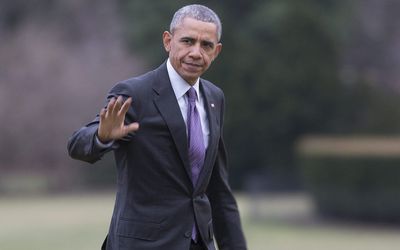
US President Barack Obama arrives at the White House last week. Picture: EPA/CHRIS KLEPONS
WASHINGTON — British Prime Minister David Cameron got "distracted" and French President Nicolas Sarkozy wanted to promote his country during the 2011 Nato-led military intervention in Libya, US President Barack Obama said in an interview with The Atlantic on Thursday.
Mr Obama did not shy away from rebuking two of his closest allies in the extensive magazine interview, as he discussed the conditions surrounding the British and French-led bombing campaign that led to the fall of Muammar Gaddafi’s regime.
Mr Obama said that when he considered what went wrong in Libya, "there’s room for criticism because I had more faith in the Europeans, given Libya’s proximity, being invested in the follow-up". Mr Cameron stopped paying attention soon after the military operation, he said, becoming "distracted by a range of other things."
During the bombing campaign, Mr Obama said, Mr Sarkozy wanted to "trumpet the flights he was taking in the air campaign, despite the fact that we had wiped out all the air defences and essentially set up the entire infrastructure" for the operation.
Since the government’s collapse, Libya has descended into near-anarchy, ruled by rival militias vying for power while the Islamic State group has gained influence in the country.
France has said it will on Monday propose imposing European Union (EU) sanctions on any Libyan official obstructing the formation of a United Nations-backed unity government.
"I do not exclude threatening them with sanctions. In any case, that is what I will propose to my foreign affairs colleagues on Monday in Brussels," French Foreign Minister Jean-Marc Ayrault on Thursday told the iTELE news channel.
The sanctions would most likely consist of travel bans to the EU and asset freezes, and target the speaker of Libya’s internationally recognised parliament, Aguila Saleh, as well as Nuri Abu Sahmein of the Tripoli-based General National Congress and its head Khalifa Ghweil, a European diplomatic source said.
AFP


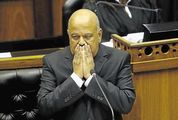
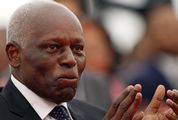
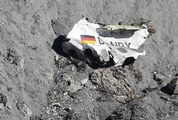

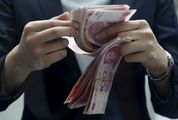

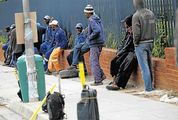
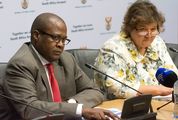
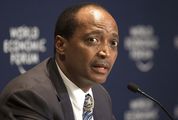

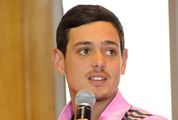








Change: 0.40%
Change: 0.47%
Change: -0.49%
Change: 0.53%
Change: 1.03%
Data supplied by Profile Data
Change: 1.71%
Change: 1.28%
Change: 0.40%
Change: 0.00%
Change: 1.64%
Data supplied by Profile Data
Change: -1.27%
Change: 0.00%
Change: 0.05%
Change: -0.08%
Change: 0.35%
Data supplied by Profile Data
Change: -0.02%
Change: 0.21%
Change: -0.06%
Change: 0.53%
Change: 0.70%
Data supplied by Profile Data